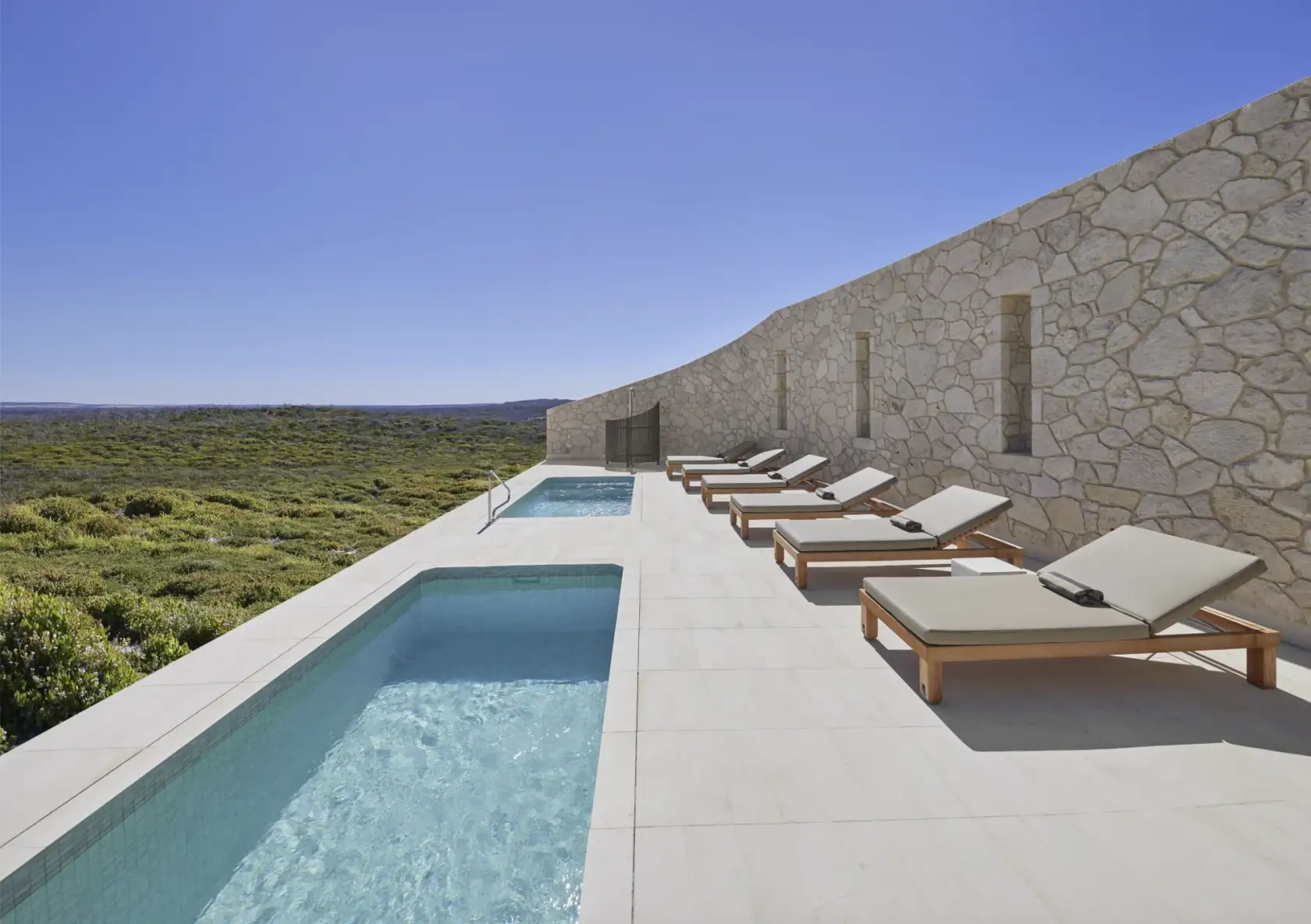

Eco-friendly pool decking alternatives
On the lookout for new innovations to lighten your environmental footprint, while saving time and money on maintenance? Here’s some fresh decking ideas that might fit the bill. Advances in recycling and production methods are producing some viable alternatives to traditional decking products, with interesting, sustainably focused results.
Recycled composite decking
Recycled composite decking materials are gaining popularity for their green qualities. These decks are typically made from a combination of recycled plastics – including post-industrial waste like plastic milk bottles – and wood fibres. This has the double impact of reducing demand for virgin materials while diverting waste from landfill.
Composites offer the look of traditional wood without the need for regular maintenance like staining and sealing. The material’s natural resistance to water and decay makes it ideal for applications where exposure to the elements is likely. It’s inherent durability also means you’ll get years out of your installation with little or no need to replace rotting boards.
Bamboo
Bamboo is a rapidly renewable plant that grows much faster than other timber sources. It reaches maturity in around three to five years, unlike hardwoods, which take decades. As a biodegradable material, there is minimal environmental impact when the product reaches the end of its life cycle.
A natural resistance to pests, mould and water damage make bamboo an excellent pool decking choice. It is an interesting and exotic aesthetic option for outdoor spaces, while a range of available styles and finishes give you the design flexibility to match other elements of your pool and surrounds.
Bamboo does need a little maintenance, including sealing to maintain colour and integrity, though not to the same extent as traditional hardwood options.
Rubber pavers
Made from recycled tyres, rubber pavers provide a comfortable and safe slip-resistant surface for pool decks, while diverting waste from landfill.
They are durable, weather-resistant, and offer excellent shock absorption, making them an excellent option for families with little ones. Rubber pavers can withstand harsh conditions including UV exposure, extreme temperatures and heavy traffic.
These products are generally easy to install, often using an interlocking system that can save time and labour costs.
Cork decking
In its pure form, cork comes from the bark of cork oak trees. The harvesting process doesn’t harm the tree and the bark regenerates, meaning it is a completely renewable resource. Cork flooring, including pool decking, is usually made from the waste generated during the production of bottle corks, where leftover material is ground down, mixed with a binder, moulded and baked.
The result is a durable, non-slip, soft-feel flooring product that absorbs minimal heat, muffles noise and requires minimal maintenance.
Cork is water-resistant and naturally anti-microbial, making it a practical choice, while also providing an attractive and unique surface for pool surrounds.
As we continue to shift toward more sustainable living, we’re seeing an increasing range of eco-friendly pool decking alternatives that don’t skimp on style in the name of the environment, offering new and interesting choices to meet any outdoor design.
